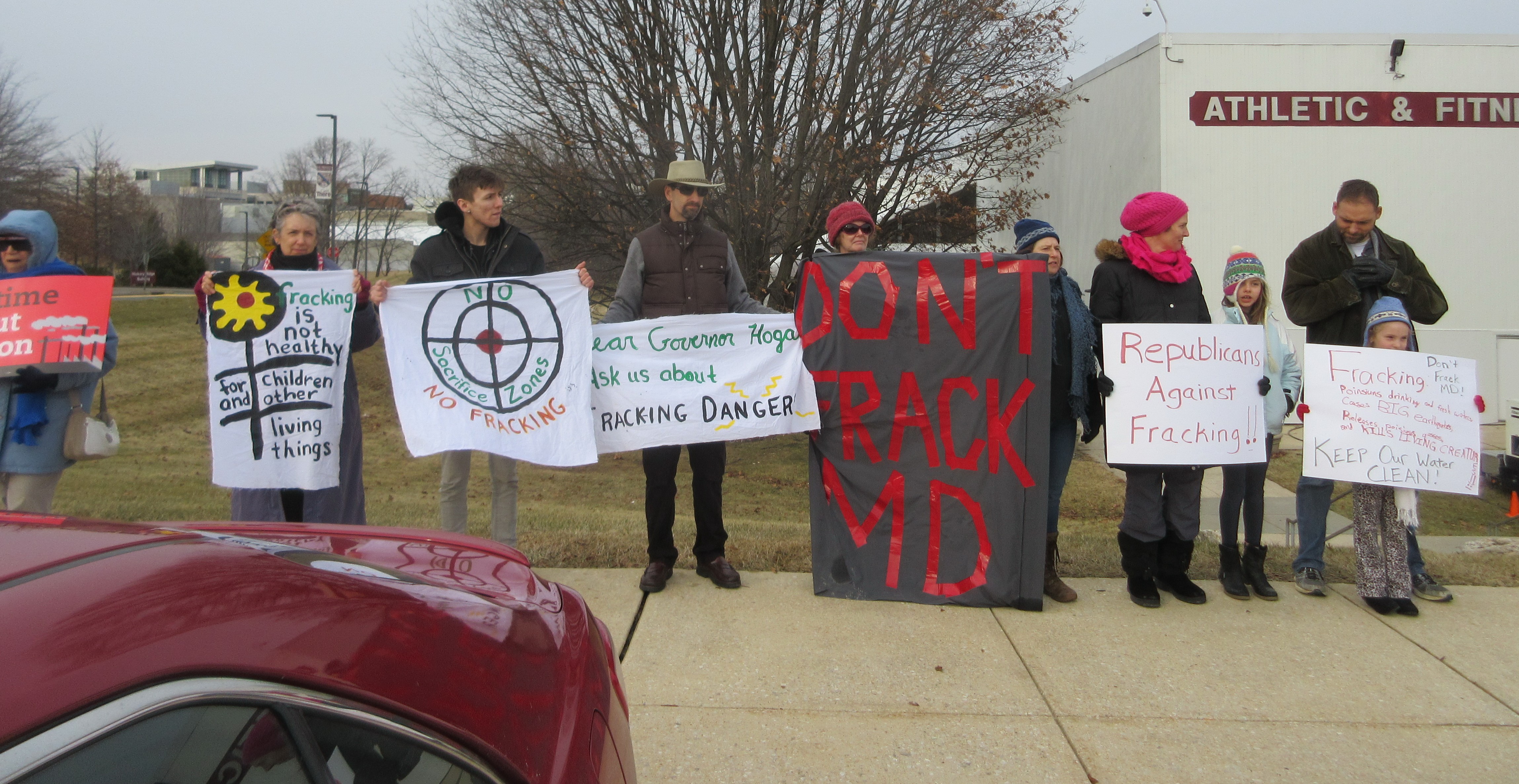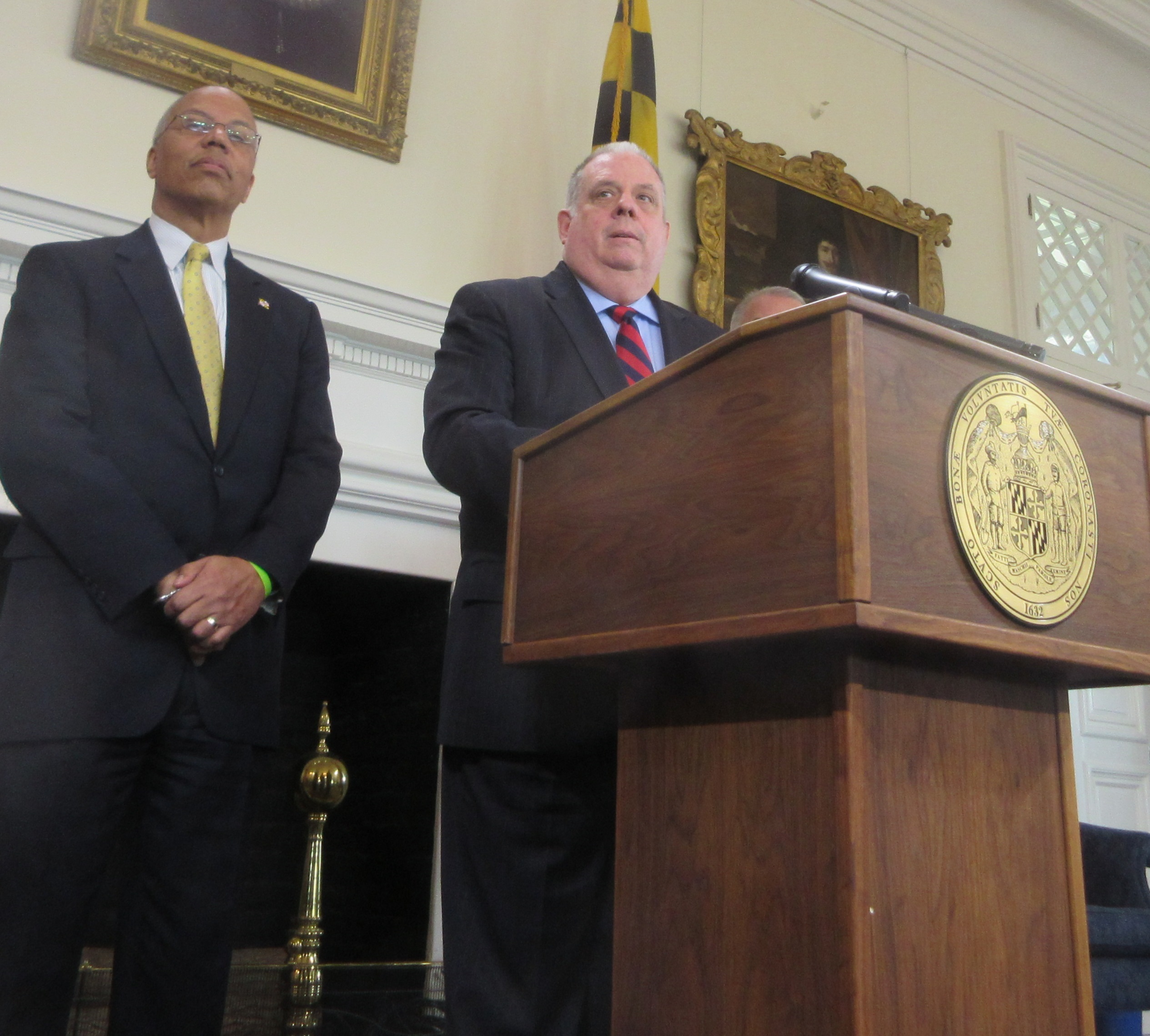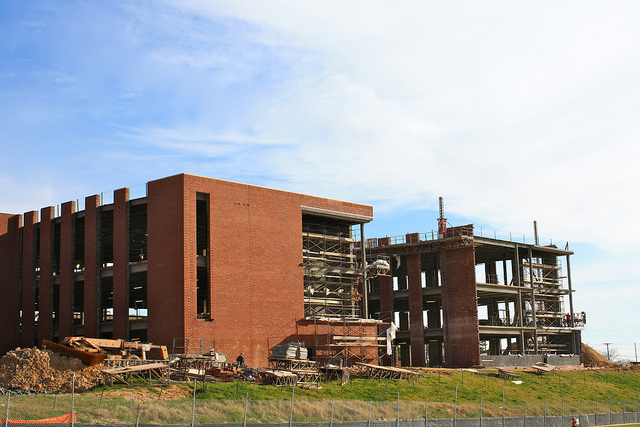By Barry Rascovar
For MarylandReporter.com
With apologies to Shakespeare, the continuing battle over gas exploration in Maryland’s far-western Garrett County reads like this:
“To frack or not to frack, that is the question.
“Whether ‘tis nobler in the mind to suffer environmentalists’ slings and arrows of an outrageous drilling ban or take arms against a sea of troubles and, by opposing them, let the state moratorium lapse, crack open Marcellus shale and unleash the fortunes flowing from natural gas.”
It’s a furious dispute which has dragged on for years.
Environmentalists view hydraulic fracturing of black Marcellus shale in mountainous Garrett County as pure evil sure to pollute drinking water, pristine streams, the health of citizens and lay waste to 100,000 acres in the state’s most remote county.
Proponents say that’s buncombe. Done safely and with plenty of state oversight, “fracking” as it is called can be accomplished – and is accomplished all over the country – without damning side effects.
(Fracking has been used in well production since 1950, but didn’t become the superstar of oil drilling until this century, thanks to recent advances in petro-geology, fluid dynamics, engineering, computing, horizontal drilling and 3D seismic imaging.)
Cracking open shale
Today, one-half of all U.S. crude oil production and two-thirds of all natural gas production comes from wells that employ fracking – sending a mix of high-pressure water, sand and chemicals through underground pipes drilled horizontally that cracks open ancient layers of shale, thus releasing previously unreachable pools of petroleum liquids.
Yet in Maryland, the “shale revolution” hasn’t happened.
Under intense pressure from a core Democratic voting group – environmentalists – Gov. Martin O’Malley declared a moratorium in 2011 while a scientific study was undertaken.
Much to the activists’ dismay, the panel concluded fracking could be done safely if the state imposed strong regulations. This led O’Malley to promulgate tough, restrictive rules for fracking in 2014.
Unsatisfied, anti-frackers got the legislature to approve another two-year moratorium in 2015. Gov. Larry Hogan refused to sign the bill but didn’t stop it from becoming law.
That led to new state regulations now awaiting approval by a joint legislative panel. Meanwhile, the moratorium runs out in October.
Push for complete ban
Environmentalists are determined to push through a permanent fracking ban in Maryland this legislative session. Whether there would be enough votes to overturn a likely Hogan veto remains in question.
Forgotten in this bitter back-and-forth are the landowners of isolated Garrett County who sorely need the financial boost that could come through drilling on their lands.
Farming communities in Pennsylvania and West Virginia have reaped huge lease and royalty payments from oil companies who hit pay dirt in those two states.
In fact, Pennsylvania now ranks No. 1 in shale gas production (ahead of Texas) and West Virginia ranks No. 3. They are the prime beneficiaries of the massive amounts of Marcellus shale under land in that part of the country.
But petroleum firms no longer show interest in Maryland.
Deterrents to fracking
First there’s the regulatory and legislative uncertainty. No company wants to risk tens of millions of dollars in a state where the door could be slammed shut at any time.
Second, there’s the extremely low price of natural gas, a trend that shows no signs of abating, possibly for decades.
Third, there’s the small amount of reachable petroleum liquids in the Marcellus shale beneath Garrett County and a portion of neighboring Alleghany County. The numbers just don’t add up for oil companies.
Tapping into shale formations with new technologies revolutionized this nation’s energy situation. Fracked wells tripled in just five years. Drilling has been most intense in North Dakota, Montana, Texas, Pennsylvania and West Virginia.
But this fracking phenomenon also has driven down the price of natural gas to such low levels that exploration in questionable regions like Maryland is uneconomic.
A law permanently banning fracking in Maryland would foreclose any chance of Garrett landowners ever benefiting from higher natural gas prices and breakthroughs in drilling technologies that might make hydraulic fracturing safe and secure.
Events beyond the state’s control already have determined that fracking won’t happen in Maryland any time soon. That plus Hogan’s new regulations – said to be the toughest in the country – appear to provide assurance that environmentalists’ worst nightmares won’t come true.
That should have ended this rancorous discussion but it hasn’t. Environmentalists want a grand-slam home run that purges even the thought of fracking ever occurring in Maryland.
But forever is an awfully long time, a fact that may dissuade enough lawmakers from turning their backs totally on Garrett County land owners.
Barry Rascovar’s blog is politicalmaryland.com. He can be contacted at brascovar@hotmail.com.







Once again, Mr Roscover with all due respect, in your commentary you have shown that you really do not know much about the subject of fracking and its’ possible ramifications not only for Western Maryland but also for the rest of the state. Your description of those opposed to fracking as “environmentalist” is an attempt to paint an image of those of us opposed to fracking as radicals. I assure you that many of us opposed to fracking in Western Maryland come from a wide variety of personal and political backgrounds. This is not a partisan issue.
Perhaps you should do a minimal amount of research on the subject and learn what modern fracking truly is and how it is done. Fracking today is a far cry from what you suggest has been going on since the 1950’s. Water and chemicals are not shot down into a drilled hole in “pipes” as you suggest. Water , sand and unknown chemicals are introduced to the drilled well via high pressure. The wells are only partially lined. A drilled well can be miles deep and wide, far beyond what you may consider to be “piped”. Millions of gallons of water are contaminated in the drilling and fracking process. Where do you think this water is coming from and where will it be disposed of after the fracking process?
I am a lifelong resident native of Western Maryland. I own property in both Allegany and Garrett Counties. I draw my drinking water from a well. I am not willing to take a chance that my grandchildren may be drinking water that may or may not be contaminated. Once contaminated there is no fixing the water source. Meanwhile the local folks you say that need the funds generated from fracking will most likely take their newly found money and move out of the area. Those of us remaining will be dealing with the contamination forever. If you think Garrett and Allegany Counties are the only counties that will be fracked in the future you area sorely mistaken. Once the Marcellus Shale is exhausted, the remaining gas basins located throughout central and eastern Maryland will be fracked. Sooner or later it will affect you. How do you think the gas will be transported to Cove Point? Trucks? Perhaps the most likely method of transporting the newly fracked gas will be via pipelines that will no doubt be created by seizing property in central Maryland through eminent domain.
I do not trust the state of Maryland to enforce the rules that they are attempting to create. That is pretty much like having the fox guard the hen house. The vast majority of western Maryland citizens(Remember we are all part of “One Maryland”) are not in favor of fracking. Although you attempt to portray Garrett and Allegany Counties as being remote, we are only a few hours from numerous metropolitan areas and our citizens are not quite as backwoods as you may imagine. Our local and state officials that are so pro fracking have a lot to gain by promoting fracking not the least of which will be the large sums of money donated to their individual election campaigns. I assure you that we will trace the funds and make it public so that everyone can easily see just why our local elected officials loyalties are directed to the gas industries and not to the local constituents. One more suggestion for you Mr. Roscover, take a refresher course on Maryland geography. There is not an “Alleghany County” anywhere in Maryland. Perhaps on your next visit to our wonderful region from the arm of your recliner you may find “Allegany County” on the Western Maryland map.
A heavy industrial gas field is not compatible with a tourism industry predicated on a nice quiet and peaceful environment. Who would ever want to go on a vacation or buy a vacation home in a large scale industrail gas field? We have a 300 million dollar tourism economy that does not leave behind holes through all the water resources FOREVER.
WATER WILL BE THE NEXT GOLD FOR WESTERN MARYLAND BUT ONLY IF IT IS FULLY PROTECTED. Fracking has not delivered the jobs or boom in the economy in PA or West Va. Whoever thinks Maryland should follow the lead of WV and PA needs their head examined. Maryland can do much better by moving forward into alternative energies instead of backwards with fossil fuels. The permanment impacts are too risky and the rewards of a boom and bust extraction cycle are too fleeting and harmful. We need sustainable economies not an economy dependent on finite resources.
Neither are wind turbines aka “bird Cuisinarts” and solar mirrors…
As for finite resources… Yet, you’ll stake “sustainable economies” on erratic power sources such as wind and solar…
And how will your sainted tourism fare when people can’t afford to drive there ?
UNG Gas is not used for transportation and who wants to vacation in GASLAND?
As soon as storage is solved i.e smart grid and battery systems electricty will not be erratic. Electric cars…..and tourists can drive here for free.
Sainted tourism as opposed to demonic fossil fuels? I’ll take sainted tourism anyday. FACT the well paying jobs in fracking go to out-of-state experienced crews and the jobs that do come with fracking are the most dangerous and toxic industrial jobs there are. Maryland can do much better for it’s youth and workers than boom and bust toxic jobs guaranteed to be temporary.
To think Maryland would follow the path of the devastated economies and rock bottom public health of PA and WV is insane. We are a blue state and don’t need to follow the fossil fuel agenda of the idiot in chief POTUS and his corporate crony GOP shills who are headed for the trash bin of history.
Just as I thought… You are a shining example of a moronic Maryland Socialist ( Democrat) voter…
If your house is heated by gas or coal fired electricity, you should disconnect and trust in the “environment” to provide you with enough steady and reliable energy through erratic wind power and sunlight which can be obscured by clouds, dirty collectors, etc.
Do you ever wonder how turbines operate on calm wind days ? By using “fossil fuels” ?
Same for solar on less than optimal days of sun ?
Also, you mentioned “Gasland”, a discredited movie…
And you’re using a PC or smartphone to write… How are they powered ?